American birdman battles bloodthirsty polar bears at the end of the world – and he has seen the future
Cooper Island’s Birdman has nerves of steel.
For five decades, Seattle resident George Divoky, 78, has completed an annual solo pilgrimage to a hostile island off the coast of Alaska to study his beloved seabirds.
There on Cooper Island, he saw first-hand climate change in action, with melting sea ice radically altering the Arctic landscape and with it the habits of native wildlife.
Most devastating for Divoky, it has led to a new threat: the polar bear.
These dangerous beasts were increasingly forced to forage on land for food, resulting in the mass extermination of the colony of black guillemots to which it dedicated its life. Anchorage daily news reported.
The growing bear invasion has also put his life in danger, with Divoky forced to install trip wires to deter them, deploy motion detectors for warning and keep his shotgun within reach at all times.
George Divoky, a 78-year-old ornithologist, has studied black guillemots on Cooper Island, Alaska for fifty years
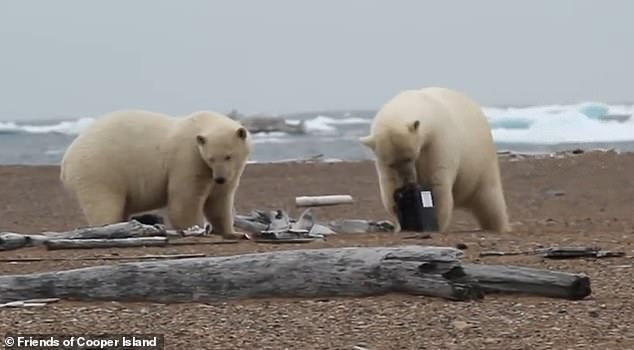
As the sea ice melts and polar bears search for food, the guillemot colony is decimated by polar bears
Divoky, a veteran ornithologist, has been monitoring black guillemots on remote Cooper Island in Alaska’s Arctic since 1972.
His research on the island has documented how the warming climate has affected the birds’ breeding patterns and survival.
The colony, once thriving with 200 nests and 600 birds, now has only a few dozen left. Divoky’s observations provide some of the longest-running data on the impact of climate change on wildlife.
The polar bears, which came to the island in 2002, according to Divoky, are becoming increasingly stranded on land as the sea ice on which they depend for hunting seals is shrinking. Their hunger has driven them to Cooper Island, where they have become increasingly adept at plundering the guillemot nests.
In August, Divoky, 78, noticed that three bears – a mother and her two cubs – had turned over his carefully placed plastic nest boxes that he had set up to help protect them.
After firing warning shots to scare the bears away, Divoky inspected the gruesome damage. Half the nests had been destroyed and many birds had died.
‘I experienced this and it was very unique. And I wish I hadn’t done that,” Divoky told the Anchorage Daily News. “You couldn’t look away from the train wreck.”
Divoky’s once vibrant colony has now been devastated by the combined pressures of retreating sea ice, changing prey populations, and now bears.
‘I don’t want them [the bears] in theory to be here. But what am I? To the extent that apparently fewer and fewer people care what I do, or why I do it, or how I do it,” he said.
He continued, “Yes, we have set up bear-proof boxes to keep the colony running, but there is no point in having a bear patrol now to try to stop any disturbance to the bears, when bears on land are unavoidable every year.”
The black guillemots, which spend most of their lives at sea, depend on sea ice to feed on Arctic cod. But the ice is retreating further and further every year.
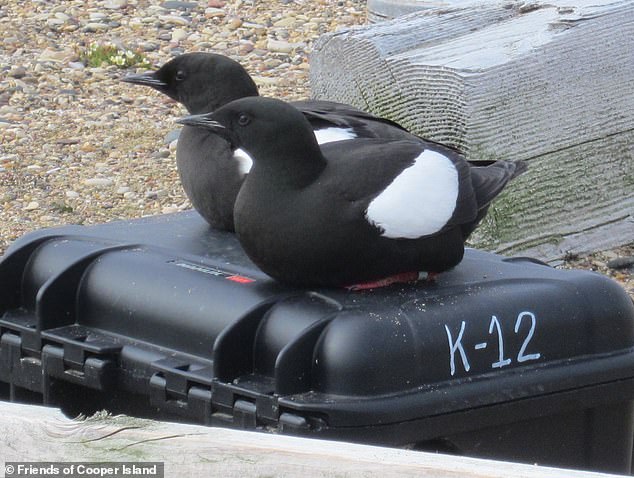
Once an advocate for the birds, Divoky has now shifted his focus to understanding and accepting the changing Arctic landscape
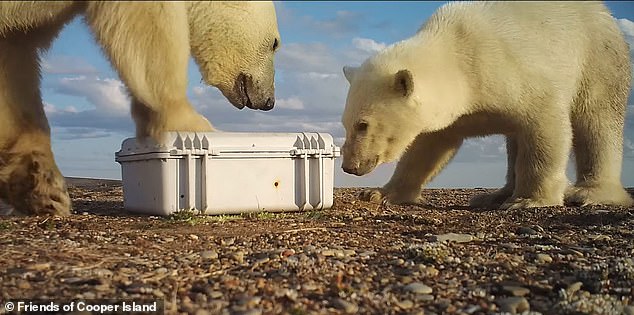
Divoky had made the boxes by cutting holes in hard-shell plastic cases, which had previously protected the birds from bears. But they have now discovered how to infiltrate
The longer ice-free summers initially helped the birds, giving them more time to breed. But now that the ice has disappeared, their food supply has dwindled and the colony’s numbers have steadily declined.
Divoky’s 50th field season, which could be his last extended stay, was marked by significant losses.
“It’s a signal of climate change,” he told the Anchorage Daily News.
“Maybe one of the least important in terms of the whole global climate change, but it’s one whose history we know, from ’72, when this colony was nothing, to ’89, when it was the largest colony in Alaska, to In 2024, when the birds that remained here, the two dozen pairs, could not raise young because of the polar bears and the melting of the sea ice,” he continued.
‘And now I’m on the side of the polar bears. I have become a polar bear advocate. I say I want these polar bears to do well. They won’t have the ice much longer. Use the island in any way, rest or whatever.”
‘But you won’t get guillemots here in the future. And you will be able to move around more freely because I won’t be here much at all,” he added.
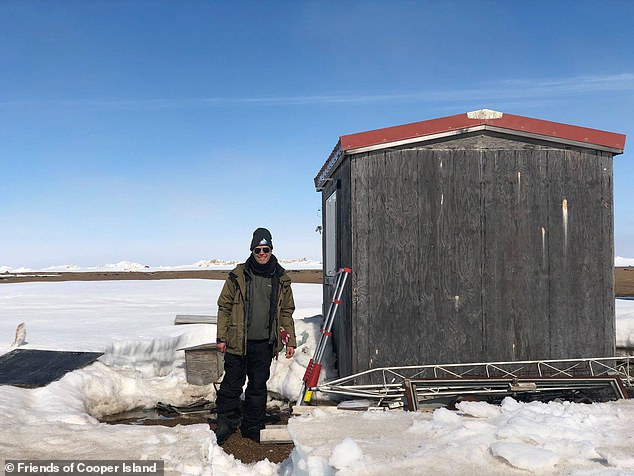
In the photo: The plywood hut where Divoky does his research on Cooper Island
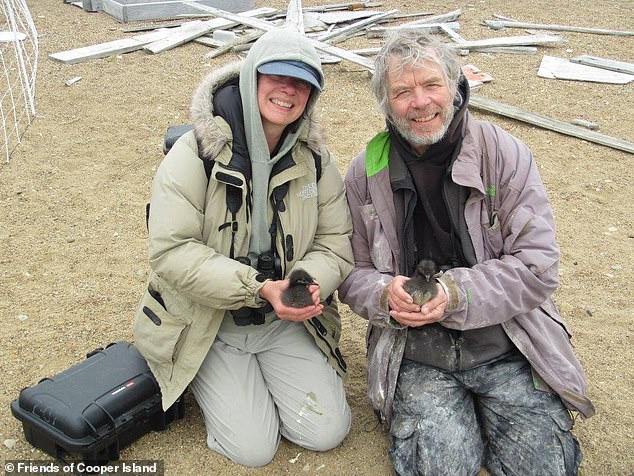
Despite the bleak outlook, he remains drawn to the island and the birds he has studied for so long
Despite his gloomy outlook, Divoky remains connected to the birds he has been studying for half a century. Some have lived more than 25 years, and he knows them by the colored bands he placed on their legs as a young boy. But with more and more bears raiding nests and no sea ice in sight, the future of the colony looks bleak.
As he packed up camp, Divoky reflected on the changing Arctic landscape and the grim realities facing both guillemots and polar bears.
“One of the most important things in life is knowing when to leave,” he said. “It’s kind of like the logical, if you will, ending.”
Still, Divoky may not be ready to close this chapter completely. When he returned to Seattle, Washington, he began planning a trip back to Cooper Island next year.
Despite the outcome of this year’s trip, he still wants to see what happens next.
